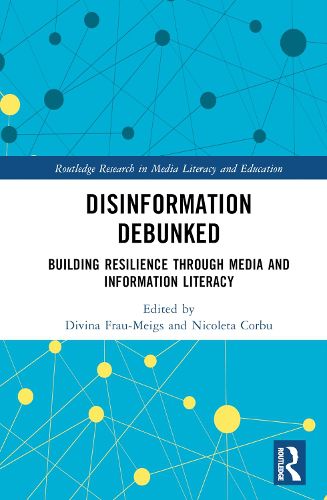Readings Newsletter
Become a Readings Member to make your shopping experience even easier.
Sign in or sign up for free!
You’re not far away from qualifying for FREE standard shipping within Australia
You’ve qualified for FREE standard shipping within Australia
The cart is loading…






Disinformation Debunked: Building Resilience through Media and Information Literacy examines the way media and information literacy (MIL) can address disinformation in conjunction with fact-checkers and developers, to benefit from the expertise of these fields in fighting disinformation.
The book highlights the underlying stakes that are involved in the fight against disinformation, from producing smart tools to generalizing their use beyond the journalistic profession. It considers the MIL theories and methodologies at work in the digital era, especially from the perspective of digital visual literacy. Offering a comparative study of four European national experiences (France, Romania, Spain, and Sweden), the authors also make public policy recommendations to improve the fight against disinformation.
This book is of great importance to students, scholars, and educators working on media and information literacy, digital media, journalism, mass communication, misinformation and disinformation.
$9.00 standard shipping within Australia
FREE standard shipping within Australia for orders over $100.00
Express & International shipping calculated at checkout
Disinformation Debunked: Building Resilience through Media and Information Literacy examines the way media and information literacy (MIL) can address disinformation in conjunction with fact-checkers and developers, to benefit from the expertise of these fields in fighting disinformation.
The book highlights the underlying stakes that are involved in the fight against disinformation, from producing smart tools to generalizing their use beyond the journalistic profession. It considers the MIL theories and methodologies at work in the digital era, especially from the perspective of digital visual literacy. Offering a comparative study of four European national experiences (France, Romania, Spain, and Sweden), the authors also make public policy recommendations to improve the fight against disinformation.
This book is of great importance to students, scholars, and educators working on media and information literacy, digital media, journalism, mass communication, misinformation and disinformation.